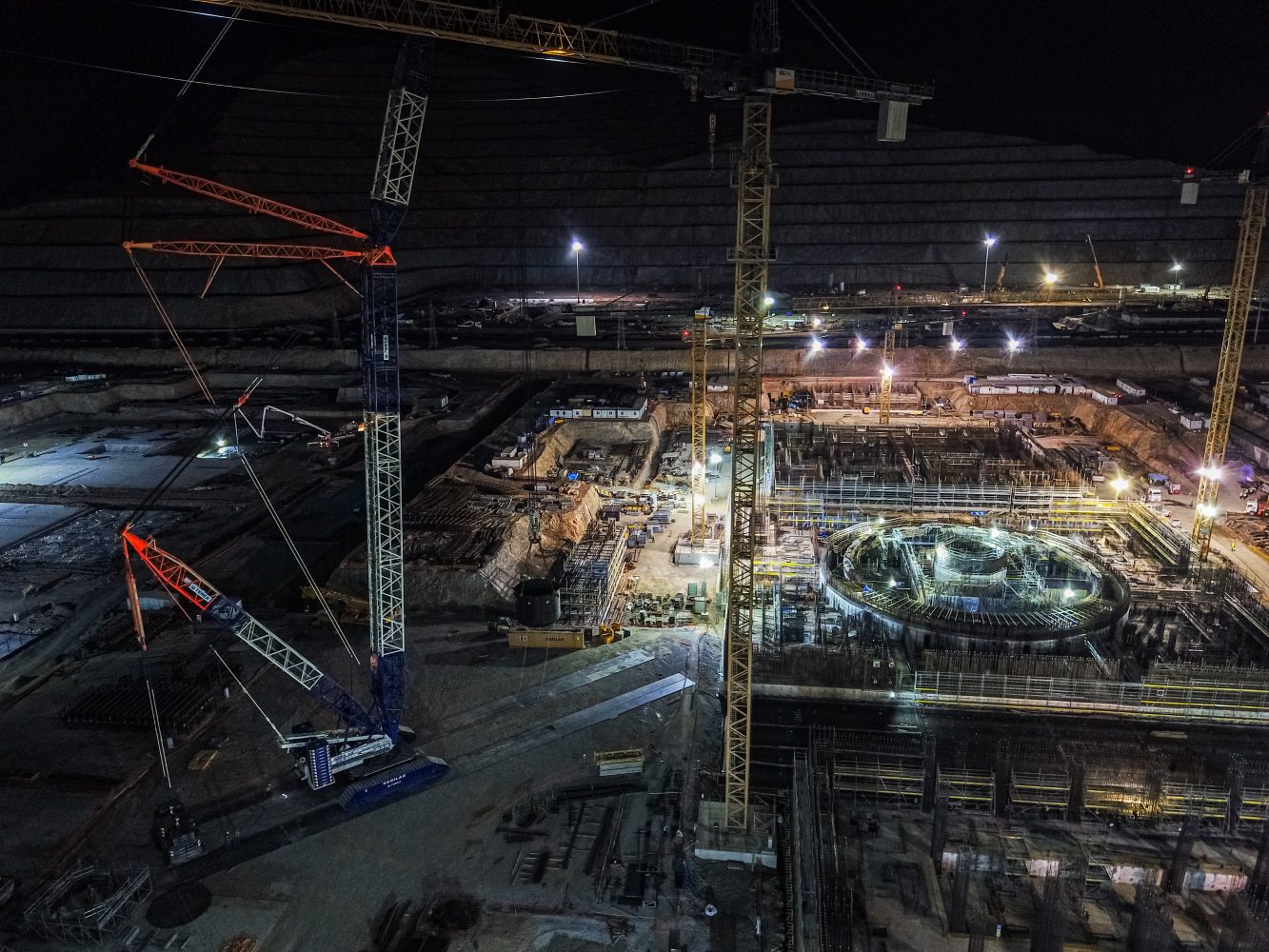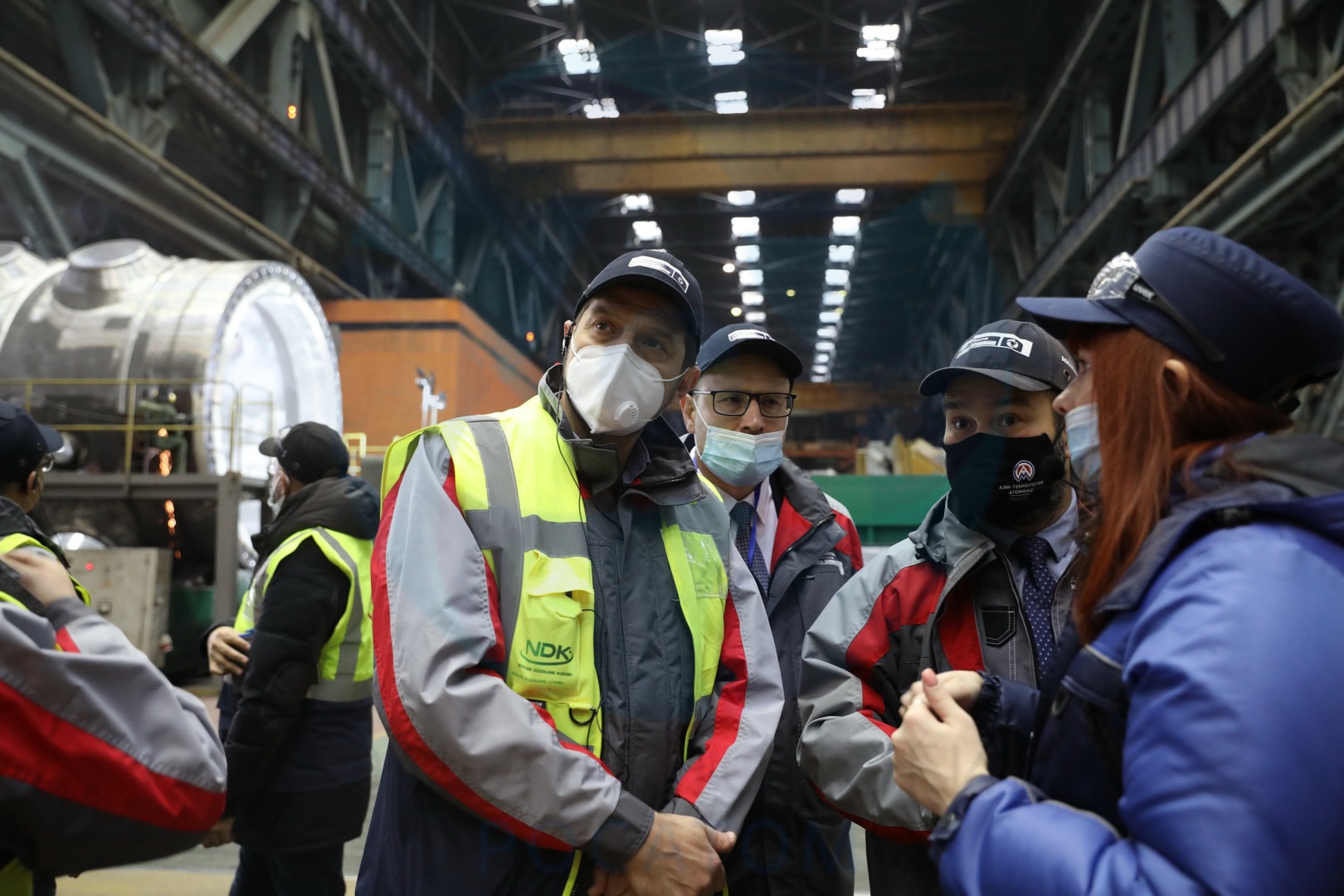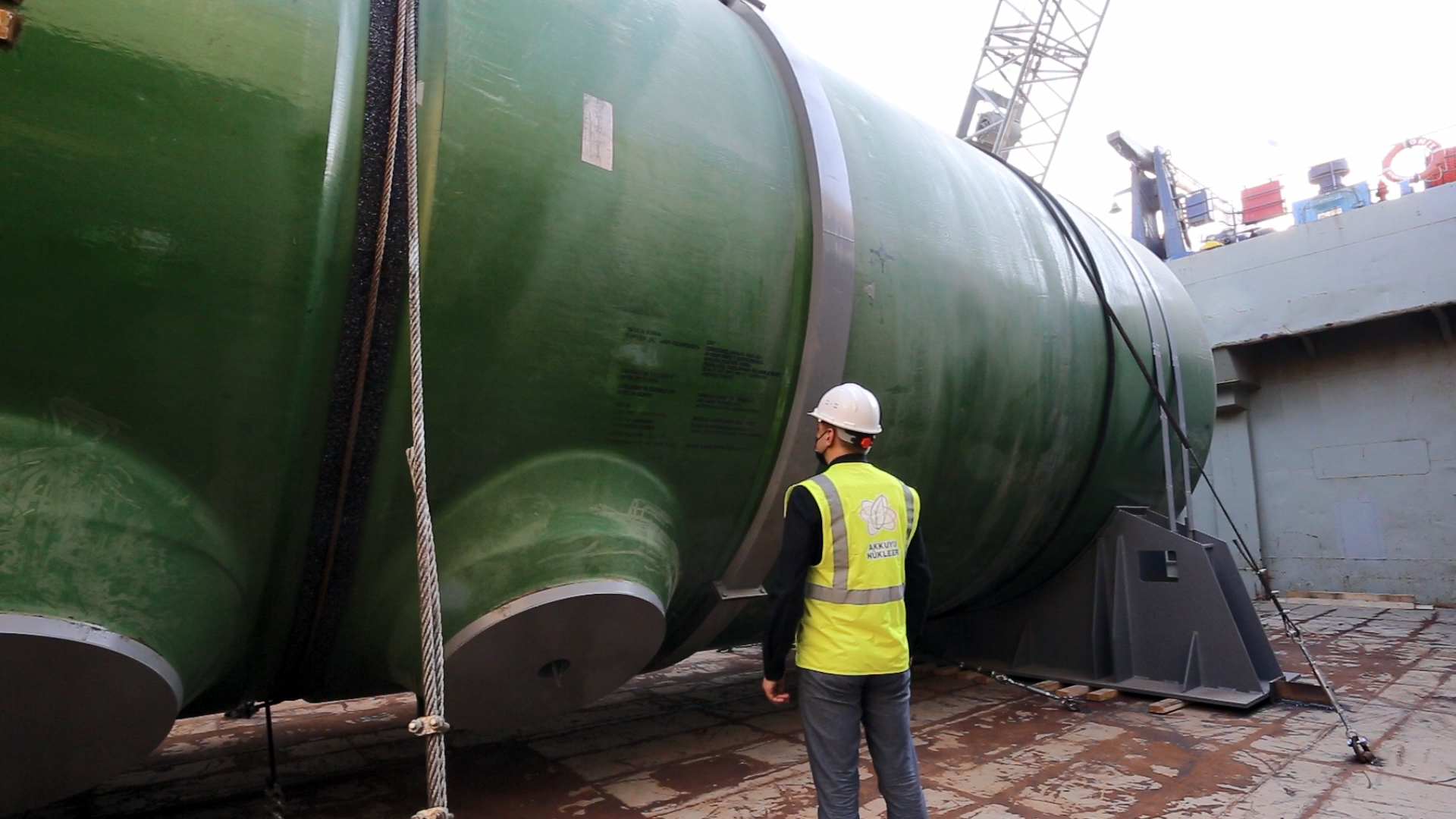
Energy To Illuminate Turkey
back to contents“A construction license for Akkuyu Unit 3 has been granted. Our energy mix will be more diversified with the new source of energy. The Akkuyu nuclear power plant will light up all Turkey,” the Ministry of Energy and National Resources of Turkey said.
The first concrete for Unit 3 might be poured as soon as next spring, said Kirill Komarov, Rosatom’s First Deputy Director General for Corporate Development and International Business. He also added that Rosatom expected a construction license for Akkuyu Unit 4 to be issued by the autumn of 2021. “All the documents were submitted in May 2020. This is the last license we have to obtain. I think it will be granted no later than the autumn of 2021,” Kirill Komarov stressed.
After all four units of the Akkuyu nuclear power plant with an installed capacity of 4,800 MW are put into operation, the plant will generate around 35 billion kilowatt-hours of electricity every year, covering 10% of the country’s total demand for electric power.

On-site construction operations are going full tilt at three reactor units. Russian manufactures keep producing nuclear equipment and shipping it to the site. The Volgodonsk-based production facility of AEM Technologies (part of Rosatom) has manufactured a reactor head for Akkuyu Unit 1. The production process took nearly one and a half year. Representatives of Turkey’s Nuclear Regulatory Authority (NDK) supervised key production stages. The reactor head is used to seal the pressure vessel and prevent floating of the reactor internals. The reactor pressure vessel and head belong to Class 1 products in terms of earthquake resistance. In December, the same production facility has completed the installation of tubing into the first steam generator for Akkuyu Unit 2. Steam generators are heat exchangers that belong to the nuclear island and are safety Class 1 products.
In mid-November, a delegation of the President’s Council for Nuclear Safety of the Republic of Turkey headed by the President of the Council Zafer Demircan visited the Volgodonsk production site of AEM Technologies. The delegation was informed about the progress in the production of core equipment for the Akkuyu nuclear power plant and held a working meeting on the status of the project and equipment supplies to the construction site. The representatives of Turkey toured the production facility manufacturing core equipment for the primary coolant system of nuclear power plants.
As noted by AEM Technologies CEO Igor Kotov, Atommash meets its production program despite the current year’s restrictions and without compromising on quality of the products. “This has become possible thanks to both our hard work and effective cooperation with our Turkish colleagues,” Igor Kotov stressed.
In his turn, Zafer Demircan thanked everyone for hospitality and mentioned the plant’s expertise. “AEM Technologies has extensive experience in manufacturing equipment for the primary coolant system of nuclear power plants. Today we have seen for ourselves that every piece of equipment is manufactured in strict compliance with technical documents and specifications,” Zafer Demircan said.
The cooperation between Russia and Turkey goes far beyond construction of the nuclear power plant and includes development of the national nuclear infrastructure, particularly social and educational projects. In November, Rosatom organized the Global Atomic Quiz held online in 11 languages and dedicated to the 2020 World Science Day. More than 12,000 contestants from over 70 countries took part in the quiz. They had to answer 25 questions ranging in complexity and topics. Regardless of the results, each contestant was awarded a certificate and provided a link to a video in which experts analyzed and explained answers to the questions in detail. “The Global Atomic Quiz has brought together people from all over the world to learn new scientific facts about nuclear energy on the single platform. I am glad that, as an expert in nuclear, I can be a part of the project,” Dr. Senem Şentürk Lüle from the Istanbul Technical University said.
In late November, Titan-2 and İçtaş – two companies engaged in the nuclear plant construction project in Gülnar – provided support to the local administration and purchased 17 computers for the middle boarding school in Gülnar. Hüseyin Kadim, Head of National Education in Gülnar, said, “Since November 23, 2020, children have been learning remotely. With the new 17 computers, we increased the number of points of access to the distant learning system. These computers have saved Gülnar.”

Turkish students studying for nuclear majors make good progress and win recognition from international organizations. In late November, 11 Master’s degree students, including six students from Turkey, studying nuclear physics in Russia were awarded Marie Skłodowska-Curie scholarships for women. The winners from Turkey were Seida Merve Değirmenci, Aişe Gök, Yağmur Küçük, Ahsen Özdemir and Zeyneb Nur Şahin (Thermal Engineering, Peter the Great Saint Petersburg Polytechnic University) and Nurberk Sungur (Design, Operation and Engineering of Nuclear Power Plants, the same university). “We welcome the award of Marie Skłodowska-Curie scholarships to Russian and foreign students studying nuclear physics at Russian universities. This is a very timely initiative of the IAEA to support education and improve gender balance in the nuclear industry,” Valery Karezin from Rosatom’s HR Department said




